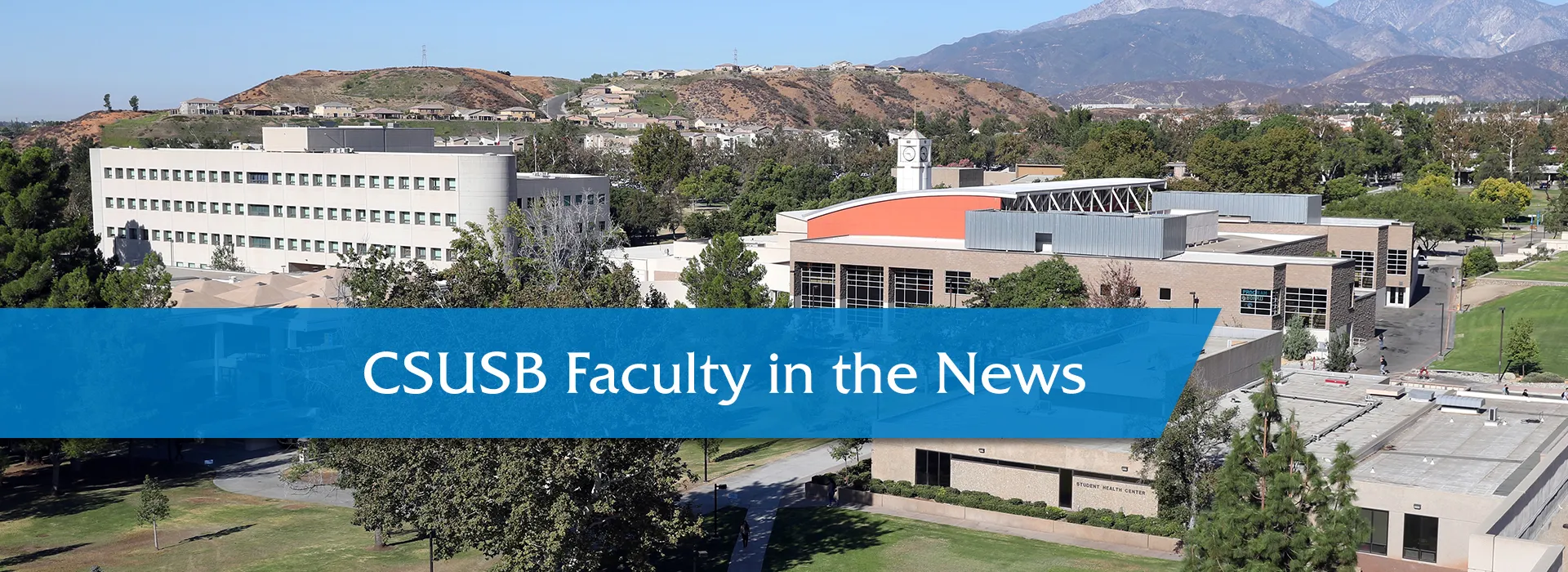
NOTE: Faculty, if you are interviewed and quoted by news media, or if your work has been cited, and you have an online link to the article or video, please let us know. Contact us at news@csusb.edu.
Coverage of the reported hack of the Coachella Valley Music & Arts Festival website continued, and with that, two more news outlets contacted Tony Coulson, professor of information and decision sciences and director of Cal State San Bernardino’s Cyber Security Center. Festival producers sent out emails on Feb. 28 warning accountholders at the festival website of the security breech.
In an interview with The Orange County Register, Coulson recommended that accountholders should take steps to protect their credit by putting alerts on their credit reports to ensure that no one opens new accounts in their names.
And while the festival producers’ email said passwords and financial information were not compromised, Coulson advised users to change their passwords and consider changing their user names.
The article was published March 2, 2017, and can be read at “Coachella festival gets hacked; personal info compromised.”
Coulson was also interviewed by CBSLA.com (KCSB 2/KCAL9). He explained how the stolen information could be used by a hacker. “They might buy this data and check other sources, like banks, to see what the email and password are being used,” he said. “So I would say go out and change your password and most likely you’ll be fine.”
He said the stolen information is already for sale on the dark web for just a few hundred dollars, but the seller could be from anywhere around the world.
“Hacking techniques are getting more and more sophisticated, and there’s fewer people to defend against them in the cyber security profession,” Coulson said.
The article, along with an online video report, was posted March 1, 2017, and is online at “Coachella site hacked, user account info stolen.”
The economy of the Inland Empire appears to be on the rise, according to the latest survey of purchasing managers conducted by CSUSB’s Institute for Applied Research. On March 1, the institute released its monthly Inland Empire Purchasing Managers’ Index, which increased for the second month in a row after a three-month slump.
It takes three months to establish a trend, said Barbara Sirotnik, the institute’s director and professor of information and decision sciences. However, she said in a telephone interview that she anticipates continued slow growth in the sector.
Sirotnik said she suspected low numbers in the last quarter of 2016 were part of a cyclical trend.
The article was published March 1, 2017, and also appeared in The Press-Enterprise, Inland Valley Daily Bulletin and Redlands Daily Facts under the headline, ”Inland manufacturing grows in February.”
And the political news website Capital & Main featured the work of Brian Levin, criminal justice, who tracks hate crimes, terrorism and extremist groups through Center for the Study of Hate and Extremism.
“After some years of patrolling Washington Heights and Harlem, Levin left the NYPD and took his undergraduate degree at the University of Pennsylvania and his law degree at Stanford. Two decades ago, as a professor at a small New Jersey college, he launched the Center for the Study of Hate and Extremism, which he moved to California State University, San Bernardino when he received a teaching position there in 1999. Today, under his aegis, the center is the largest university research organization of its kind,” the article said.
And, the article noted: “Although Levin’s center has monitored hate crimes across the country, (Levin) contends that the media’s recent focus on violent acts by extremists is masking a shift in the mainstream national discourse that is equally troubling. ‘What we’re seeing now is a coarsening of society that encompasses both (verbal violence) and bigotry, aside from criminal acts,’ he says. ‘We have so much more intergroup conflict, involving so many different variables — not only traditional bigotry, but also those relating to class education, and employment.’”
The article was published March 2, 2017, and can be read at “The Golden State of hate: how the Internet made hate respectable.”